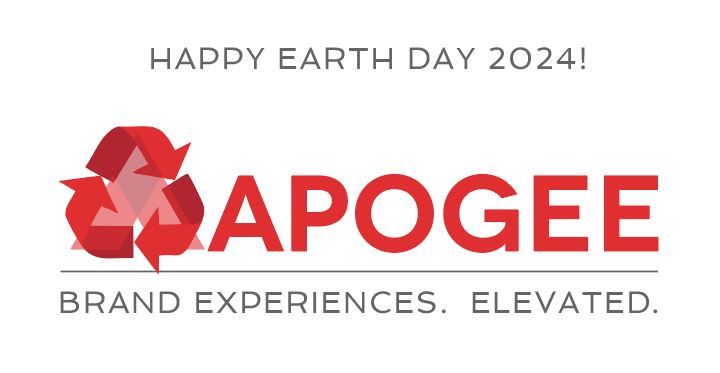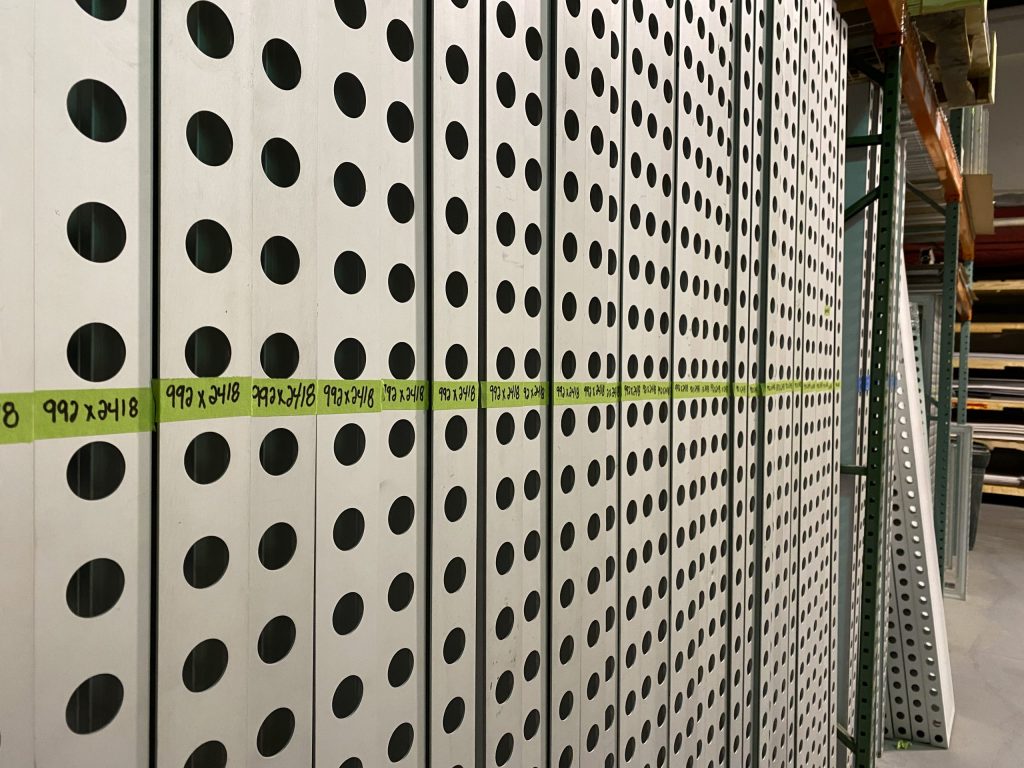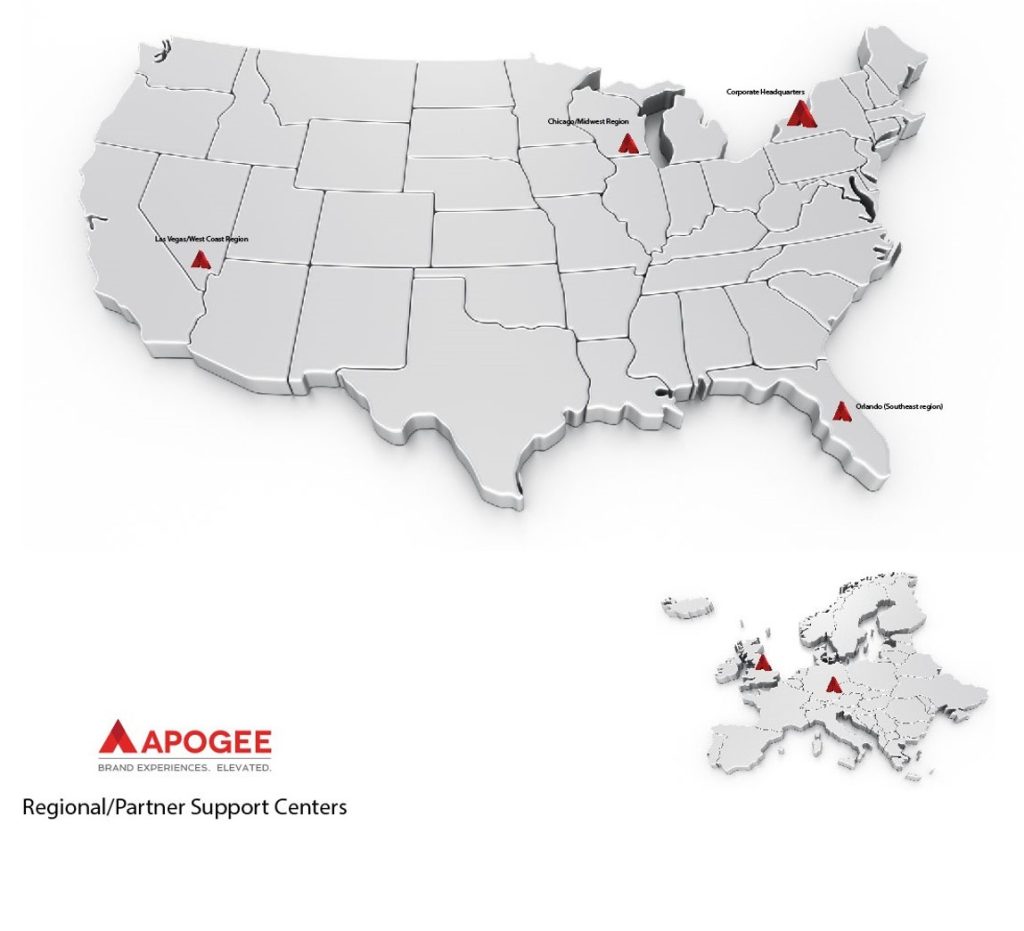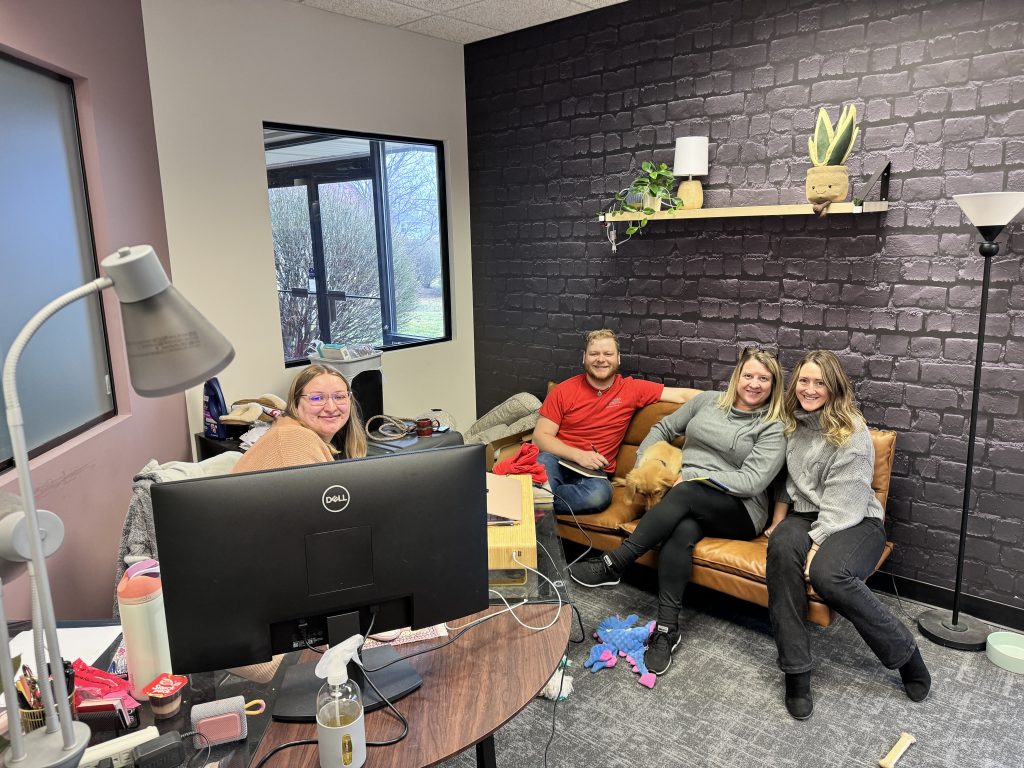
As we celebrate Earth Day, it’s a perfect time to reflect on the environmental impact of the events and trade show industry and explore how we can make our operations more sustainable. The drive towards eco-friendliness is not just about reducing our carbon footprint; it’s about creating a legacy of responsibility and innovation. Here, we outline four key sustainability practices that are reshaping the trade show industry.
1. Eco-Friendly Materials
The foundation of any trade show booth is the materials used. Sustainable practices start with opting for eco-friendly materials such as bamboo, recycled plastics, and biodegradable fabrics. These materials not only minimize environmental impact but also offer high durability and a modern aesthetic appeal. By choosing suppliers who prioritize green materials, we can significantly reduce the environmental effect that is often associated with producing and disposing of exhibit components. At Apogee we work closely to refine our construction methods to provide a sustainable and eco-friendly exhibit environment. For example we can source printed fabric made from recycled plastic water bottles to help reduce waste.
2. Energy Efficiency
Lighting and digital displays are integral to trade show booths but can consume a lot of energy. Transitioning to LED lighting and energy-efficient screens can drastically cut down power usage. Many venues have adopted energy efficient lighting, as well as programmable lighting and heating/cooling devices that optimize power consumption and throttle their demand based on building occupancy levels.
3. Waste Reduction Strategies

Waste management is a critical challenge at events. To tackle this, we encourage practices such as digital registration and electronic handouts to minimize paper use. We strongly encourage exhibitors to reduce (*or eliminate) printing paper brochures and shipping them to their shows. Studies done by Exhibitor Magazine documented that nearly 80% of all literature handed out at trade shows gets disposed of. The added carbon footprint that is added to your booth by shipping sometimes heavy printed documents is no longer necessary.
Additionally, designing modular booths that can be reused and reconfigured for multiple shows not only reduces waste but also lowers the frequency of manufacturing new structures. Establishing recycling stations throughout the event space and partnering with waste management services that focus on recycling and composting can help ensure that waste is disposed of responsibly. One very effective method of reduce, re-use, re-cycle policy is that of Rental exhibits. Rental exhibits are generally built with re-usable products that are inherently eco-friendly. You can read our blog about rentals here to see if they are right for your program.
4. Carbon Offsetting and Transportation

Transportation to and from trade shows can contribute significantly to carbon emissions. We advocate for selecting venues that are accessible by public transportation, encouraging carpooling among attendees, and choosing centralized locations that minimize travel distances. Furthermore, investing in carbon offset programs that support renewable energy projects or reforestation can help neutralize the carbon footprint of events. We also have strategically placed rental properties in major venues like Orlando and Las Vegas to minimize cross-country shipping costs.
Moving Forward Together
As industry professionals, it’s our duty to lead by example. By adopting and promoting these sustainable practices, we not only enhance our operational efficiency but also contribute to a healthier planet. Every day should be Earth day and we should re-invest constantly in our commitment to help our planet for generations to come.


